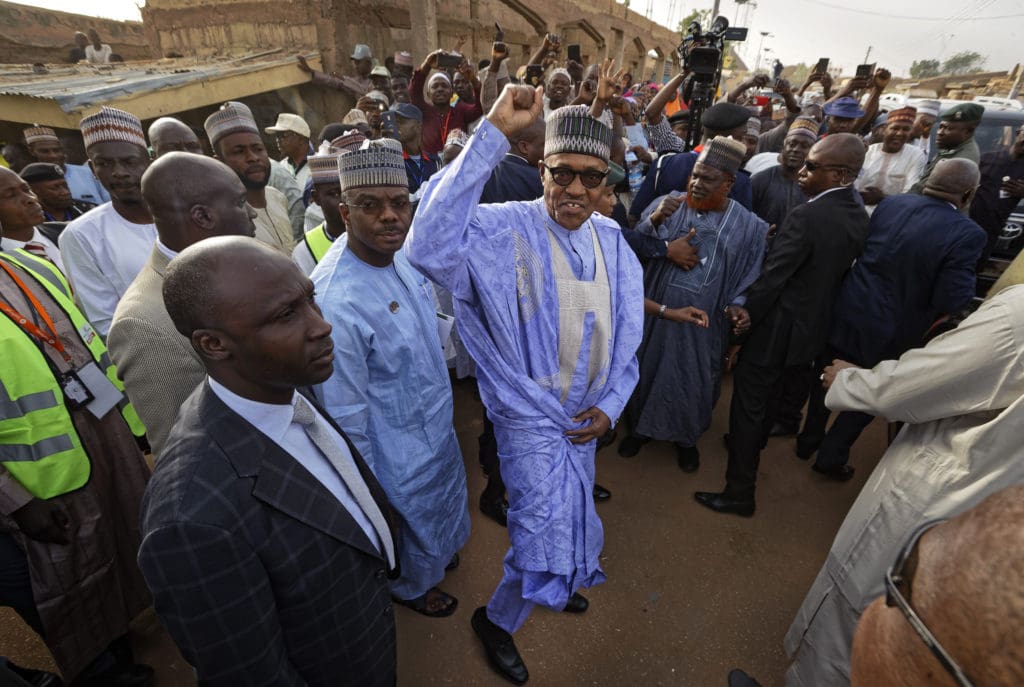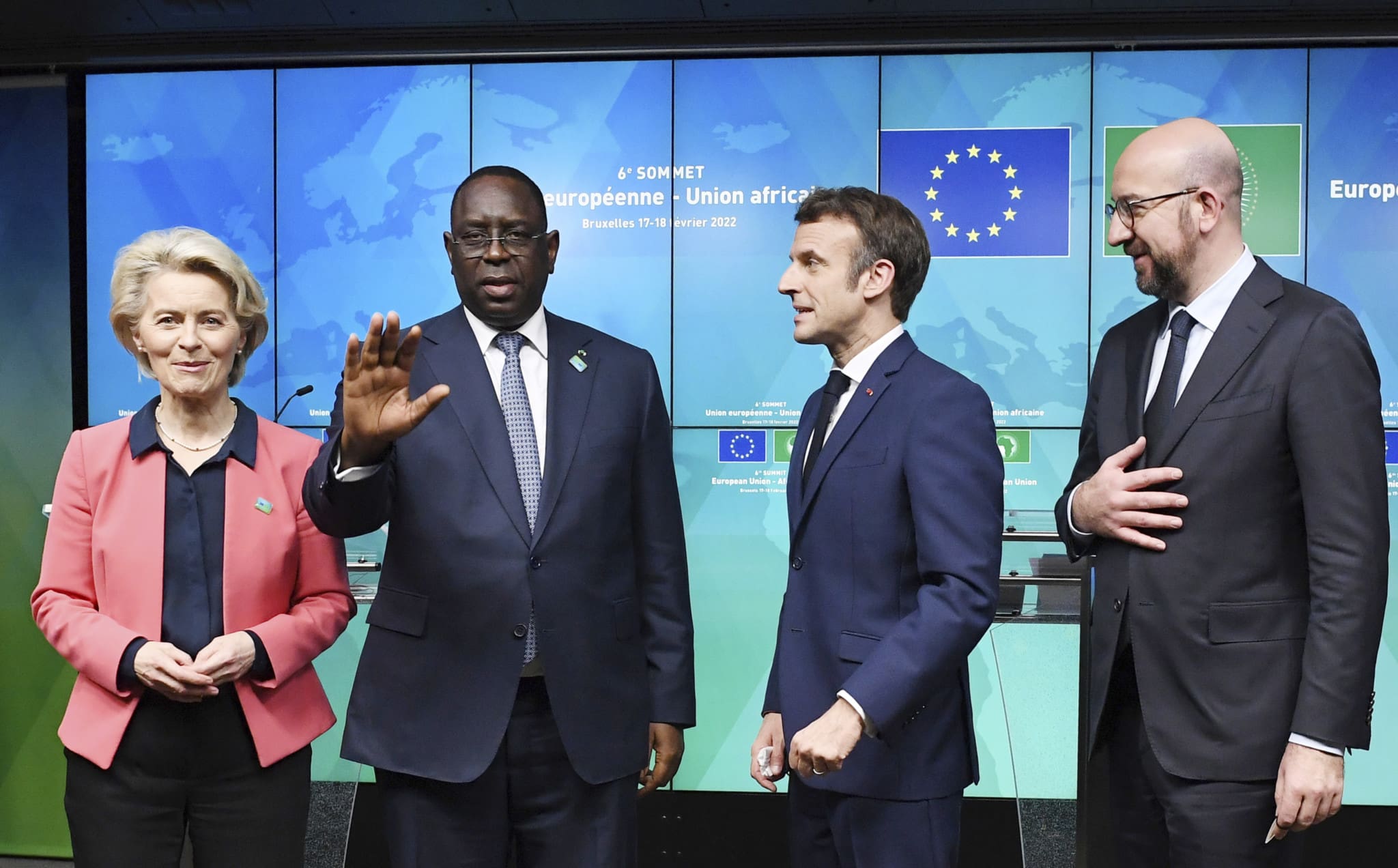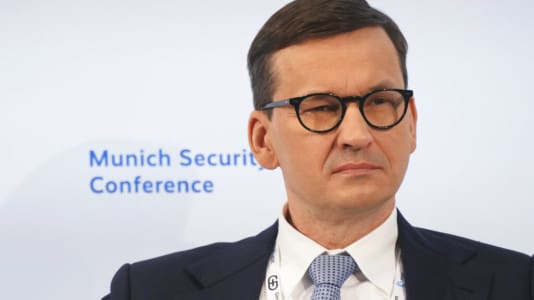As the EU-Africa summit is approaching its conclusion, it has given us a rare and valuable opportunity to hear the voice of African leaders concerning migration and what the West is doing wrong in presenting such an irresistible pull-factor for African citizens. Nigeria’s President Muhammadu Buhari’s recent interview for Politico perhaps sums up best the pan-African thinking about what they call “Fortress Europe,” and our homemade troubles with mass migration from the black continent.
Buhari is without exaggeration the poster-boy for the mainstream European media, an anti-corruption crusader, and the cherry on the cake is his frequent criticism of Western policies and values. Since elected as president in 2015, the “converted democrat,” as the former military coup leader designates himself, has tried to stem the flow of Nigeria’s all-pervasive corruption, with limited success. Just before the EU summit in an interview, Buhari criticized European leaders for what he calls their one-sided deals with Africa. He also thinks that illegal, or “irregular” migration, as he calls it, is draining Africa’s talent pool of valuable human resources, while at the same time, it causes political crises in Europe. Buhari calls on western politicians to help create opportunities for Africans at home and entice them to stay in their countries of birth, rather than trying to reinforce “Fortress Europe.”

The Nigerian president also called for economic agreements with the EU that could help job-creation initiatives in Africa. Despite the fact that 32 African nations have tariff-free access to European markets, he thinks that European agricultural subsidies are destroying African producers’ chances to compete not only on Western markets, but also on their home turf. This, according to Buhari, leads to Africa remaining a net food importer despite the fact that it has the most underutilized arable land in the world, and half of its population works in agriculture. He also complained that the export of natural resources from Africa to the world is shifting wealth from the continent, while these extractive industries employ relatively few people. In conclusion, Buhari advises European leaders that the best way to stem the rising flow of economic migration to the West is to move away from trade agreements with the continent that impact African job-creation negatively.
There are a number of elements of truth in the president’s argument, but all things considered, his reasoning is fundamentally flawed.
[pp id=28379]
His argument is formally very similar to that of some of the advocates of a “Fortress Europe,” like Hungarian Prime Minister Viktor Orbán, who has stated a number of times that Europe should help African nations to develop their own economies rather than to bring their citizens over to the West. However, all things considered, there are still more arguments left in support for protecting Europe’s borders against illegal migration with physical borders, effective deportation legislation and a reform of welfare policies, than in support of an argument that help with job creation in Africa will help to stem the flow of illegal migration.
First of all, there is no Fortress Europe. There are hundreds or even thousands of African and Middle-Eastern migrants landing on the continent’s southern shores on a daily basis. The German-dominated EU’s official policy is that of migrant redistribution among member-states, rather than putting up the slightest obstacles to illegal entrants who have turned people smuggling into a more lucrative trade than drug dealing.
Furthermore, the breakneck population explosion in Africa means that the continent’s nations have long passed the point where they could create economic conditions that are similar enough to Western standards, neutralizing the pull factor of exponentially higher living standards in Europe.
[pp id=24013]
Buhari himself states that Africa’s current 1.3 billion population is set to double by 2050, and Nigeria itself will balloon to a population of 400 million. The reasons behind this population explosion cannot be explained away by some kind of European trade-policy imbalance. African families far surpass European one’s in the number of children born, even after moving to the West and living by Western standards.
Finally, among an infinite number of arguments why it is still necessary to protect Europe from illegal mass migration with proper border protection and effective immigration policies, President Buhari and the rest of African leaders now congregating in Brussels should also ask themselves, as primarily whose responsibility it is to create jobs in their homelands: European politicians’ or theirs? Until African leaders do not see the clear answer to this simple question, “Fortress Europe” must be maintained as a viable response to their own failings and their cynical tendency to put responsibility on the shoulders of European citizens.






